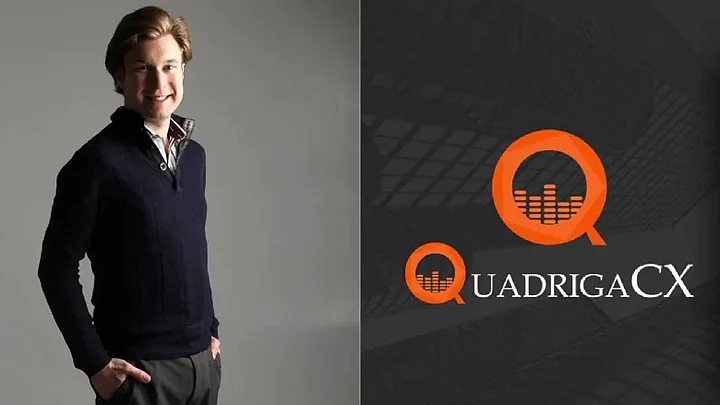A clearer picture is emerging of the mysterious demise of the CEO of one of Canada's largest cryptocurrency exchanges, who died while on a visit to India, a Canadian media report said on Friday.
Gerald Cotten, a Nova Scotia resident originally from Ontario died suddenly while in Rajasthan on 9 December, leaving his virtual company, Quadriga CX, without access to $145 million in Bitcoins and other digital assets.
His widow, Jennifer Robertson, has said in court documents that Cotten, 30, was the only person with access to his laptop, which is thought to contain the digital keys to the so-called cold wallets containing the missing cryptocurrency.
The circumstances surrounding Cotten's death — and the way he conducted his business from the couple's home in Fall River, Nova Scotia — has led to a flurry of speculation and allegations in internet chat rooms, The Canadian Press reported.
It said some former Quadriga CX users have come forward to raise questions about the 250 million dollars in cash and cryptocurrency owed to 115,000 of them.
Cotten signed his will on 27 November 2018 — less than two weeks before he died at a private hospital in Jaipur, the report noted.
In an application to probate the will, filed on 21 December 2018, Robertson confirmed that the gross value of Cotten's personal property — all of which was left to her — was 9.6 million dollars. She was granted the right to administer his estate as executor on 2 January, the report said.
The will specifically states that Robertson was authorised to access his digital assets and "obtain, access, modify, delete and control (his) passwords and other electronic credentials."
Robertson, in an affidavit filed 31 January, said she was not involved in the business, and she insisted Cotten — as Quadriga CX’s CEO and sole director — was the only person with access to the private digital keys.
The will includes a few details about Cotten's assets, but those items are limited to a section dealing with property that would have been bequeathed to friends and relatives should Robertson die within 30 days of his death, the report said.
There was also a plan in place to provide 100,000 dollars to Cotten's in-laws to help them cover the costs of caring for the couple's pet Chihuahuas, Nitro and Gully.
Court documents attached to the will include a statement of death from the J.A. Snow Funeral Home in Halifax, dated 12 December, which says Cotten died in Jaipur on 9 December. The cause of death is not listed.
In her affidavit, Robertson says she has been subjected to online threats, slanderous comments and speculation about Cotten’s death, “including whether he is really dead.”
Robertson said Cotten was diagnosed with Crohn's disease at the age of 24, about a year after he co-founded Quadriga CX with his partner Mike Patryn.
She said Cotten died from complications linked to the disease, which disrupts digestion by causing inflammation of the bowels.
Fortis Escorts hospital in Jaipur issued a statement on Thursday confirming that Cotten was admitted on 8 December, 2018, and that he died from a cardiac arrest the next night.
Meanwhile, industry critics have come forward to say the Quadriga CX debacle has proven to be a major embarrassment for Canada’s cryptocurrency industry, which includes more than a dozen exchanges across the country.
The British Columbia Securities Commission issued a statement Thursday saying it has been aware of QuadrigaCX's operations since 2017. The agency said Quadriga CX was not subject to regulation because it did not operate as a marketplace or exchange under securities laws of the province.
On Tuesday, the Nova Scotia Supreme Court granted Quadriga CX protection from its creditors and a 30-day stay of proceedings to given the insolvent company time to find the missing currency and draft a plan to restructure or sell the business.
(At The Quint, we question everything. Play an active role in shaping our journalism by becoming a member today.)
